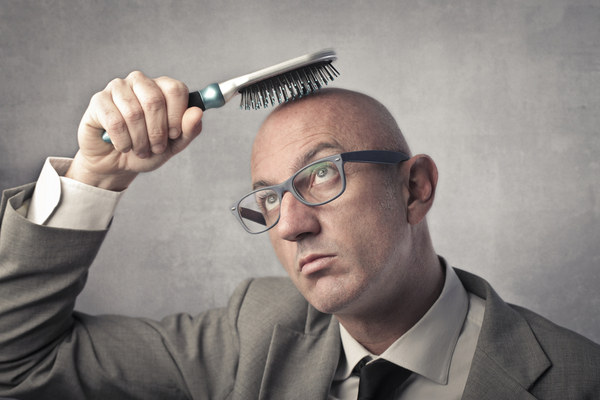Baldness Drug Curbs Men's Interest in Alcohol, Study Suggests

Some men who take the drug finasteride (Propecia) to slow a receding hair line may also find it reduces their interest in drinking alcohol, new research reveals.
Almost two-thirds of the men in the study noticed they were drinking less alcohol than before taking Propecia, said study researcher Dr. Michael Irwig, an endocrinologist and assistant professor of medicine at George Washington University School of Medicine.
But the decrease in drinking seen in the study may not be found in all men who use the popular hair-loss treatment. (A higher dose of finasteride is also prescribed to men for an enlarged prostate, and is sold as Proscar.)
The study, which was aimed at better understanding the drug's sexual side effects, looked at only younger men, ages 46 and under, who had quit taking the medication for male-pattern hair loss for at least three months, yet continued to experience effects such as a reduced sex drive and erectile dysfunction.
Although the exact mechanism for reduced alcohol consumption is not known, Irwig said he suspects that Propecia interferes with the brain's ability to make certain hormones, known as neurosteroids, which are likely linked to drinking alcohol.
The findings are the first to link finasteride use in men with changes in alcohol consumption, an effect previously shown in male mice, the researchers said in their study, published online today (June 13) in the journal Alcoholism: Clinical & Experimental Research.
Less desire for alcohol
Sign up for the Live Science daily newsletter now
Get the world’s most fascinating discoveries delivered straight to your inbox.
Estimates suggest that less than 5 percent of younger men who take Propecia develop lingering sexual problems from it, but the percentage was enough to prompt the FDA in 2012 to request the drug makers add a warning about these side effects to the label.
In the study, Irwig tracked 83 healthy men ages 21 to 46 who had persistent sexual side effects — most men had them for a year or longer — after they stopped taking Propecia.
Among the 63 men who reported drinking at least one alcoholic beverage a week before starting the hair-loss treatment, 65 percent of them said they cut back their consumption after taking it; 32 percent had no change in their drinking habits, while 3 percent said they boozed it up more. [7 Ways Alcohol Affects Your Health]
Eighteen men completely gave up drinking.
Many guys mentioned they had a lower tolerance for alcohol, felt more anxious from drinking, or recovered slower after partying. Although drinking less may not be such a bad thing for the men's health, many also showed more signs of depression, the researchers said.
Irwig said he does not suspect men were voluntarily hitting the bottle less to see if it improved their sex lives. "My research suggests that the lingering effects may be directly related to a pathway in the brain involved in alcohol consumption," he said.
Weighing the risks
Irwig advised younger men considering the use of finasteride to weigh the cosmetic benefits of having less hair against some of the drug's serious risks, including long-term sexual problems and depression.
"I think this is a very interesting paper that could point to a possible new pathway for alcohol addiction," said Dr. Marc Glashofer, a dermatologist in private practice in New York City who treats patients with male-pattern hair loss. "But I wouldn't say it changes my prescribing patterns for the drug."
Glashofer said he always recommends that men use Propecia along with the drug Minoxidil as a first step to prevent hair loss. And he explains to his patients that the treatment has sexual side effects in a very small percentage of men, which can sometimes be long term.
Very infrequently, he's had men tell him they were having sexual dysfunction and wanted to discontinue the drug.
Glashofer pointed out that the study was small and lacked a control group to compare whether men without sexual side effects from finasteride were also less interested in alcohol. He also mentioned that it's hard to tease out patients' psychological backgrounds.
"It's not uncommon for men with hair loss to have higher levels of social anxiety and depression issues, and that may lead them to go out to bars less and have lower alcohol levels," he said.
Follow LiveScience @livescience, Facebook & Google+. Original article on LiveScieince.com
Cari Nierenberg has been writing about health and wellness topics for online news outlets and print publications for more than two decades. Her work has been published by Live Science, The Washington Post, WebMD, Scientific American, among others. She has a Bachelor of Science degree in nutrition from Cornell University and a Master of Science degree in Nutrition and Communication from Boston University.










